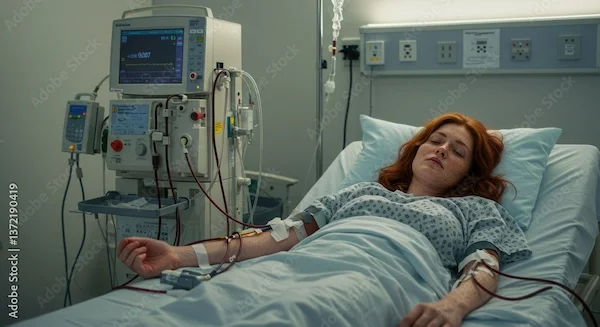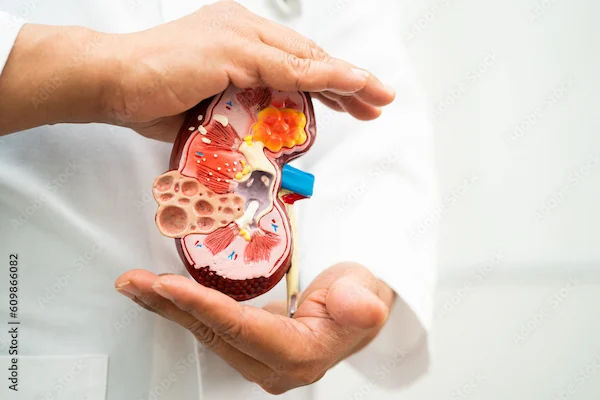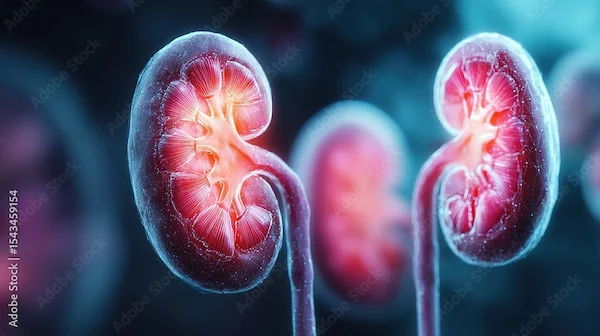How Long Is The Recovery For A Kidney Transplant?
How long is kidney transplant recovery? Learn about the typical 3-7 day hospital stay, gradual return to activities over 6 weeks to 3 months, and the ongoing journey of lifelong care.

Written by
Last updated on 17th Jul, 2025
_10.webp)
Introduction
A kidney transplant is a life changing procedure that can significantly improve the quality of life for someone with kidney failure. However, recovery after a kidney transplant is a gradual process that requires patience, care, and proper medical followup. If you or a loved one is preparing for or has recently undergone a kidney transplant, understanding the recovery timeline can help set realistic expectations and ensure a smoother healing journey.
Immediate Recovery (First Few Days After Surgery)
After the surgery, you will typically stay in the hospital for 5 to 10 days, depending on how well your new kidney is functioning and your overall health.
First 24-48 Hours: You’ll be closely monitored in the recovery room or ICU.
Pain Management: You may experience some discomfort, which can be managed with prescribed pain relievers.
Early Mobility: Doctors will encourage you to move gently to prevent blood clots and improve circulation.
Kidney Function Tests: Frequent blood tests will check if your new kidney is working properly.
First Few Weeks After Discharge
Once you leave the hospital, recovery continues at home. The first 4 to 6 weeks are crucial for healing.
Incision Care: Keep the surgical site clean and dry to prevent infection.
Medications: You’ll need to take immunosuppressants (antirejection drugs) for life to prevent your body from rejecting the new kidney. Other medications may include antibiotics, blood pressure pills, and steroids.
FollowUp Visits: You’ll have frequent checkups to monitor kidney function and adjust medications if needed.
Activity Restrictions: Avoid heavy lifting, strenuous exercise, or driving until your doctor approves.
Consult Top Nephrologists
First 3-6 Months: Gradual Improvement
During this phase, your body continues to adjust to the new kidney.
Energy Levels: Fatigue is common, but you’ll gradually regain strength.
Diet & Hydration: Follow a kidney friendly diet (low sodium, controlled protein) and drink enough fluids.
Infection Prevention: Since immunosuppressants weaken your immune system, avoid crowded places and practice good hygiene.
Long Term Recovery (6 Months to 1 Year & Beyond)
Most patients feel significantly better by 6 months, but full recovery can take up to a year or longer.
Returning to Work: Many people resume work within 2-3 months, depending on their job’s physical demands.
Exercise: Light activities like walking are encouraged; gradually increase intensity as advised by your doctor.
Lifelong Care: Regular blood tests, doctor visits, and medication adherence are essential to keep your kidney healthy.
Factors Affecting Recovery Time
Recovery varies from person to person based on:
Overall health before surgery
Age & fitness level
How well the new kidney functions
Complications (if any, like infections or rejection)
Tips for a Smooth Recovery
Tips for a smooth recovery are:
Take Medications on Time: Missing doses can lead to rejection.
Stay Hydrated: Helps kidney function.
Eat a Balanced Diet: Follow your doctor’s dietary recommendations.
Avoid Infections: Wash hands frequently, avoid raw/undercooked foods, and stay away from sick people.
Stay Active (Gently): Light walking helps circulation and recovery.
Mental Health Support: Recovery can be emotionally challenging—seek support from family or counselors.
When to Seek Medical Help?
Contact your doctor immediately if you notice:
Fever, chills, or signs of infection
Severe pain near the transplant site
Swelling, redness, or discharge from the incision
Sudden weight gain (could indicate fluid retention)
Decreased urine output
Final Thoughts
Recovering from a kidney transplant is a journey that requires time, dedication, and medical supervision. While the first few months may be challenging, most patients experience a significant improvement in their quality of life. By following your doctor’s advice, taking medications as prescribed, and maintaining a healthy lifestyle, you can ensure the best possible outcome for your new kidney. If you or a loved one is considering a kidney transplant or needs post transplant care, Apollo 24|7 offers expert consultations and support. Book an appointment today to get personalized guidance from nephrology specialists.
Consult Top Nephrologist
Consult Top Nephrologists

Dr. S Bipin Kumar
Nephrologist
13 Years • MBBS, MD General Medicine, DM, Nephrology
Rajamahendravaram
SG KIDNEY CARE, Rajamahendravaram

Dr. Govardhan Gupta
Nephrologist
15 Years • MBBS, DNB General Medicine, DrNB Nephrology
Mumbai
Oscar Superspeciality Hospital, Mumbai
Dr Sanjai Maitra
Nephrologist
24 Years • MBBS, MD (Int. Med.), DM (Nephro)
Siliguri
Atrium Diagnostics, Siliguri

Dr. Luvdeep Dogra
Nephrologist
10 Years • MBBS, MD, DM (NEPHORLOGY)
Jaipur
Dr Dogras Health Clinic, Jaipur

Dr. Siddharth Herur
Nephrologist
4 Years • MBBS, MD General Medicine, DM Nephrology
Kurnool
Medicover hospital and Gurudatta poly clinic, Kurnool
Consult Top Nephrologist

Dr. S Bipin Kumar
Nephrologist
13 Years • MBBS, MD General Medicine, DM, Nephrology
Rajamahendravaram
SG KIDNEY CARE, Rajamahendravaram

Dr. Govardhan Gupta
Nephrologist
15 Years • MBBS, DNB General Medicine, DrNB Nephrology
Mumbai
Oscar Superspeciality Hospital, Mumbai
Dr Sanjai Maitra
Nephrologist
24 Years • MBBS, MD (Int. Med.), DM (Nephro)
Siliguri
Atrium Diagnostics, Siliguri

Dr. Luvdeep Dogra
Nephrologist
10 Years • MBBS, MD, DM (NEPHORLOGY)
Jaipur
Dr Dogras Health Clinic, Jaipur

Dr. Siddharth Herur
Nephrologist
4 Years • MBBS, MD General Medicine, DM Nephrology
Kurnool
Medicover hospital and Gurudatta poly clinic, Kurnool


_13.webp)

